- Home Page
- Company Profile
-
Our Products
- Fiberglass and Insulation Sleeves
- Fire Resistant Sleeve
- Insulation Sleeves
- Polyester Expandable Braided Sleeves
- SRBP Tubes
- Polyurethane Fiberglass Sleeves 1.5 kv
- Varnished Fiberglass Sleeve F Class
- Acrylic Fiberglass Sleeving
- Fire Sleeves
- Polyurethane Fiberglass Sleeve
- PVC Coated Fiberglass Sleeve
- Silicone Coated Fiberglass Sleeve
- Polyurethane Coated Fiberglass Sleeves
- Fiberglass Sleeve ( China Sleeve )
- Fiberglass Sleeving B Class
- Nomex Paper and Electrical Insulation Papers
- Electrical Insulating Paper
- Eurotherm Laminated Nomex Paper NPN
- Pure Aramid Paper
- Laminated Fleece Paper
- Laminated Aramid Paper
- Saturated Fleece Paper
- DuPont Nomex Paper
- Saturated Fleece Paper
- Insulating Kraft Paper
- Insulation Pressboard
- Laminated Nomex
- Electrical Insulation Papers and Laminates
- Pure Aramid (Nomex) Paper
- Laminated Fleece
- Black Kraft Paper
- Amotforse Brown Kraft Paper
- Diamond dotted Paper
- Fiberglass and Insulated Cables
- Glass Epoxy Sheets and Wedges
- Varnishes and Thinners
- Electrical Insulation Tapes
- Electrical Insulation Sheets and Fabrics
- PTFE Wire
- Silicon Cable
- Insulation Film
- Fiberglass and Insulation Sleeves
- Certificates
- Contact Us
Fiberglass Cables
4.5 INR/Meter
Product Details:
- Connector Type Lugs/Terminals (on request)
- Cable Length 100m standard rolls (custom available) Meter (m)
- Temperature 60 C to +200 C continuous operation Celsius (oC)
- Conductor Type Stranded Copper (Tinned/Bare/Nickel-Plated)
- No Of Core Single / Multi Core
- Product Type Insulated Electrical Cable
- Power Rating Industrial grade based on cross-section
- Click to view more
X
Fiberglass Cables Price and Quantity
- 1 Meter
- 4.5 INR/Meter
Fiberglass Cables Specification
- Motors, Transformers, Heaters, Lighting, Automotive, Household Appliances
- Single & Multi-Phase Systems
- Standard 100m Rolls / Custom Lengths Available Meter (m)
- White, Red, Black (custom colors available)
- Stranded Copper (Tinned/Bare/Nickel-Plated)
- Depends on size (5A 200A) Ampere (amp)
- 300V / 600V / 1000V Volt (V)
- Industrial grade based on cross-section
- High-Temperature Electrical Insulation, Flame Retardant, and Mechanical Protection
- Tinned Copper / Bare Copper / Nickel-Plated Copper
- Withstands up to 2000V
- 60 C to +200 C (continuous use) Celsius (oC)
- Tinned Copper / Bare Copper / Nickel-Plated Copper
- Single / Multi Core
- As per cross-sectional area (0.5 mm 20 mm) Millimeter (mm)
- N/A (industrial cable)
- 1 Year Manufacturer Warranty
- Lugs/Terminals (on request)
- Single Core / Multi Core Flexible Cable
- Fiberglass Braid with Heat-Resistant Inner Insulation (Silicone / PVC)
- Suitable for power and signal applications Megahertz (MHZ)
- 100m standard rolls (custom available) Meter (m)
- Tinned Copper / Bare Copper / Nickel-Plated Copper
- High thermal resistance Flame retardant & self-extinguishing Excellent dielectric strength Flexible with strong mechanical protection Resistant to abrasion, oil, and chemicals
- Motors, Transformers, Appliances, Ovens, Heaters, Lighting Fixtures, Automotive Wiring
- High dielectric strength, excellent thermal & mechanical performance Ampere (amp)
- High-temperature wiring for motors, heating equipment, transformers, and appliances
- 0.25 mm 95 mm cross-section
- Insulated Electrical Cable
- 60 C to +200 C continuous operation Celsius (oC)
- 50/60 Hz power & higher frequency applications Megahertz (MHZ)
Fiberglass Cables Trade Information
- Nhava Sheva
- 1000000 Meter Per Month
- 3 Days
- Yes
- Free samples are available
- Blue spools.
- All India
- CE & RoHS
Product Description
Fiberglass Cable is manufactured by using the assured grade Fiberglass material with the help of advance technologies in order to ensure its highest strength and supreme workability. It is flexible and simple to install. It is adaptable to all weather conditions and maintenance free. The offered product is extremely durable and resistant to shocks and cracks. It can withstand high temperature and remains in its original condition for a longer time period. This product is available for sale in various specifications at reasonable rates.
Fiberglass Cable Specifications:
1. Surface Treatment: Braided
2. Temperature Range: 155-180 Degree Celsius
3. Voltage: 600/1100 Volt
4. Length: 100 Meters
5. Conductor Type: Bare copper / Tinned copper
6. Diameter: 0.50 sqmm - 240 sqmm
7. Power: 6 KV
8. Material: Fiberglass Braided Copper Wire
9. Color: Red, Black, Blue, Yellow, Orange, Brown
FAQ:
Q. What is a fiberglass cable?
Ans: A fiberglass cable, also known as a fiber optic cable, is a type of cable that transmits data using light signals. It consists of one or more glass or plastic fibers enclosed in a protective sheath.
Q. How does a fiberglass cable work?
Ans: Fiberglass cables work on the principle of total internal reflection. They transmit data by sending pulses of light through the core of the fiber, which reflects off the inner walls due to the higher refractive index of the core compared to the cladding.
Q. What are the advantages of fiberglass cables over traditional copper cables?
Ans: Fiberglass cables offer several advantages, including higher data transmission speeds, longer distance capabilities, immunity to electromagnetic interference (EMI), and thinner and lighter design.
Q. What are the different types of fiberglass cables available?
Ans: There are several types of fiberglass cables, including single-mode and multi-mode fibers. Single-mode fibers are designed for long-distance communication, while multi-mode fibers are used for shorter distances.
Q. What is the difference between single-mode and multi-mode fibers?
Ans: Single-mode fibers have a smaller core diameter and allow only one mode (light path) to travel through the core. They are suitable for long-distance communication. Multi-mode fibers have a larger core diameter and allow multiple modes to travel through the core, making them suitable for shorter distances.
Q. What are some common applications of fiberglass cables?
Ans: Fiberglass cables are used in telecommunications networks, internet connections, cable television, data centers, and for connecting various devices and equipment over long distances.
Q. Are fiberglass cables susceptible to damage?
Ans: Fiberglass cables are generally durable and resistant to environmental factors like moisture and temperature fluctuations. However, they can be damaged if bent too sharply or subjected to physical stress.
Q. How do I install fiberglass cables?
Ans: Installing fiberglass cables requires specialized tools and knowledge. It involves carefully routing and connecting the cables, avoiding sharp bends, and ensuring proper termination to minimize signal loss.
Q. Can fiberglass cables be spliced or repaired?
Ans: Yes, fiberglass cables can be spliced or repaired using fusion splicing or mechanical splicing techniques. However, this should be done by trained technicians to maintain signal quality.
Q. What is the lifespan of fiberglass cables?
Ans: Fiberglass cables are designed to have a long lifespan, often exceeding 20 years or more. Their durability and resistance to environmental factors contribute to their longevity.
Q. Do I need special equipment to use fiberglass cables?
Ans: Yes, to use fiberglass cables, youll need compatible equipment such as fiber optic transceivers, switches, and routers. Additionally, testing equipment like optical power meters may be required for maintenance and troubleshooting.
Q. Are there any security concerns with fiberglass cables?
Ans: Fiberglass cables are generally secure from eavesdropping because they do not emit electromagnetic signals that can be intercepted. However, the data they transmit may still be vulnerable to hacking if not properly secured at the network level.
Q. What is the cost of fiberglass cables compared to copper cables?
Ans: Fiberglass cables are typically more expensive than copper cables, but their higher data transmission capabilities and durability can justify the investment, especially for long-distance and high-speed applications.
Versatility Across Industries
Fiberglass cables are tailored for use in motors, transformers, heaters, lighting, automotive systems, and household appliances. Their high dielectric strength and reliable thermal performance make them suitable for both industrial and domestic settings. The broad application spectrum ensures these cables deliver consistent functionality for distributors, exporters, manufacturers, and end-users alike.
Superior Performance and Safety
Designed with a fiberglass braided outer layer and heat-resistant insulation (silicone rubber or PVC), these cables offer flame retardant and self-extinguishing properties. The structure provides high thermal resistance, robust mechanical protection, and resistance to oil, abrasion, and chemicalsmaking them ideal for high-temperature environments and ensuring operational safety.
Customizable Specifications
Customers can select from a range of conductor materials (tinned copper, bare copper, nickel-plated copper), core configurations (single/multi-core), and cable sizes. Standard supply is in 100m rolls, but custom lengths and colors are available to suit unique requirements. With ratings from 0.5A to 200A and voltage options up to 1000V, solutions can be tailored for specialized applications.
FAQs of Fiberglass Cables:
Q: How are fiberglass cables installed for motors and heating equipment?
A: Fiberglass cables can be installed using standard electrical lugs or terminals, available on request for easy connection to motors, heating equipment, transformers, and other electrical devices. Their flexibility and strong mechanical protection allow them to be routed through tight spaces and demanding environments.Q: What are the main benefits of using fiberglass cable in industrial and household applications?
A: The primary advantages include excellent thermal resistance (continuous operation from 60C to +200C), high dielectric strength, robust flame retardant and self-extinguishing features, mechanical durability, and resistance to abrasion, oil, and chemicals. These properties make them reliable for both power transmission and signal applications.Q: When should a multi-core fiberglass cable be chosen over a single-core cable?
A: Multi-core cables are recommended when multiple electrical circuits are required within a single sheath, commonly used in complex machinery, appliances, or control panels. Single-core cables are ideal for straightforward power connections or signal transmission in simpler setups.Q: Where can fiberglass cables be sourced for export or bulk distribution in India?
A: Fiberglass cables are widely available through distributors, exporters, manufacturers, suppliers, importers, and traders across India. Custom lengths and specifications can be ordered directly from leading manufacturers and suppliers for bulk or specialized requirements.Q: What processes are involved in ensuring the flame retardant and mechanically protective properties of these cables?
A: The cables are constructed with a fiberglass braided outer layer combined with heat-resistant silicone rubber or PVC insulation. This multi-layer build undergoes rigorous testing for dielectric strength, flame retardancy, and resistance to temperature extremes, oil, and chemicals, ensuring compliance with industrial standards.Q: How does cable size and cross-section affect the rated current and ampacity?
A: The rated current of fiberglass cables ranges from 0.5A to 200A depending on the cross-sectional area, with larger diameters supporting greater ampacity. Cable selection should be based on the applications electrical load, required voltage, and safety parameters to ensure optimal performance and durability.Q: What is the warranty coverage for fiberglass cables?
A: These cables are backed by a 1-year manufacturer warranty, covering defects in materials and workmanship, providing assurance to distributors and end-users regarding product reliability and quality.Tell us about your requirement

Price:
Quantity
Select Unit
- 50
- 100
- 200
- 250
- 500
- 1000+
Additional detail
Mobile number
Email

 Send Email
Send Email 
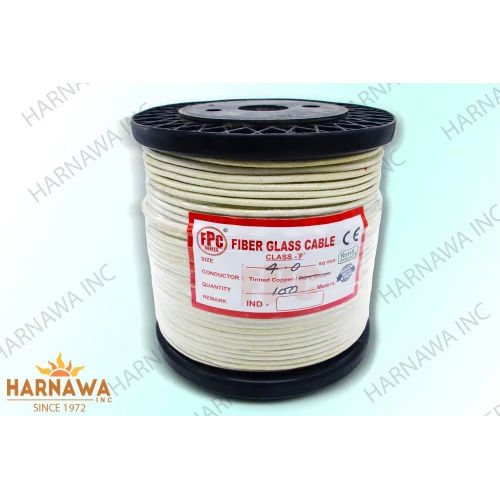
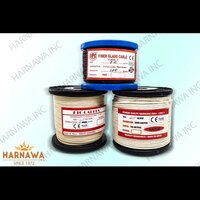
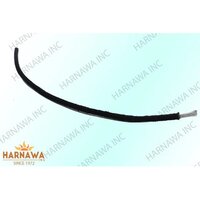
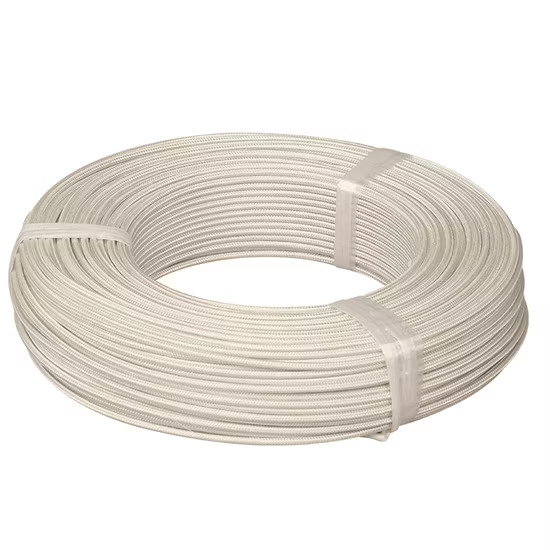
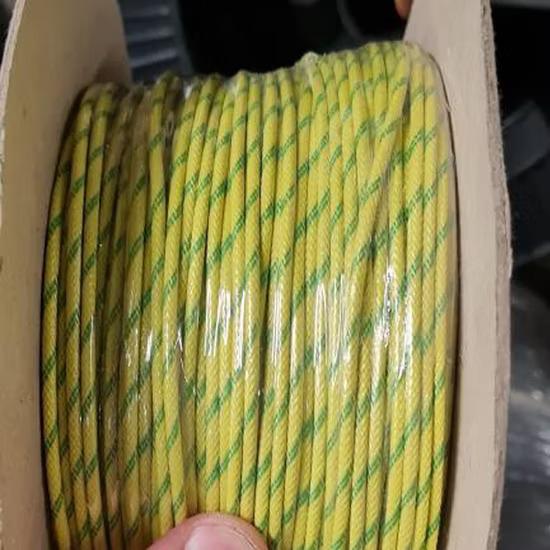
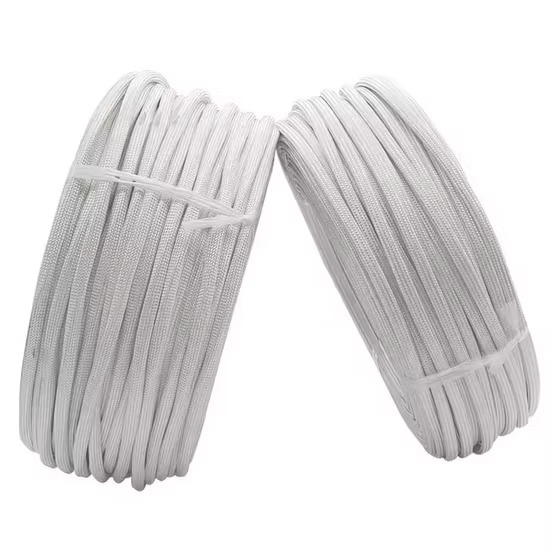
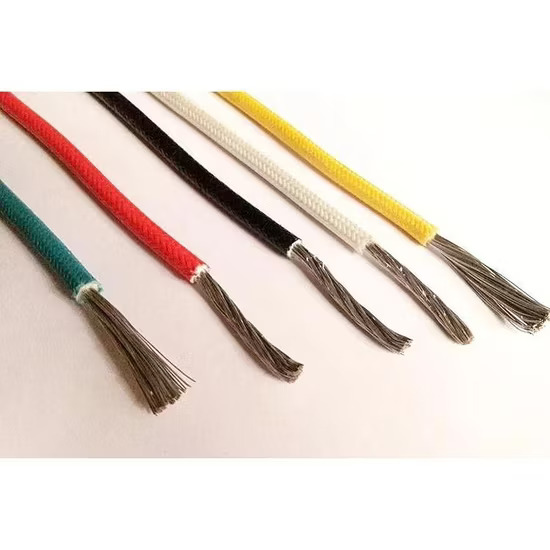
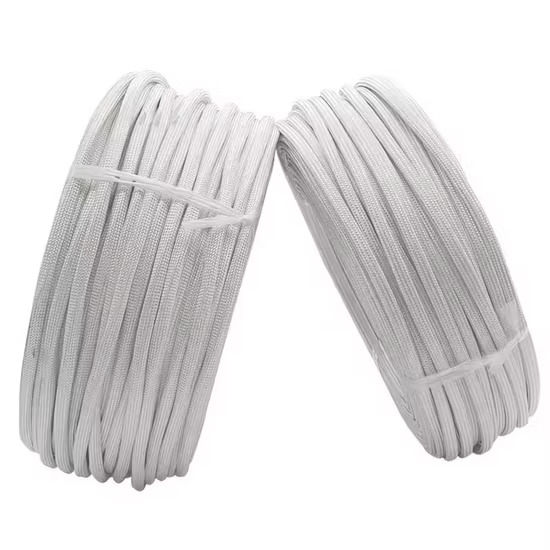
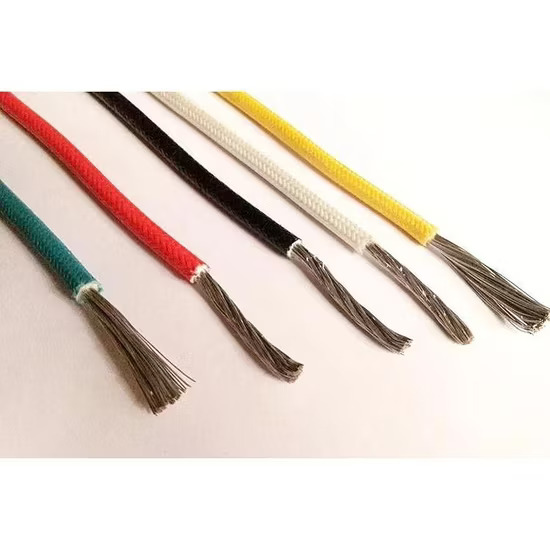
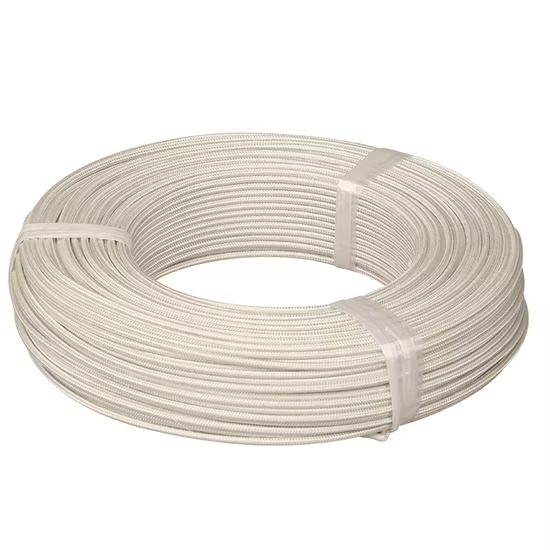











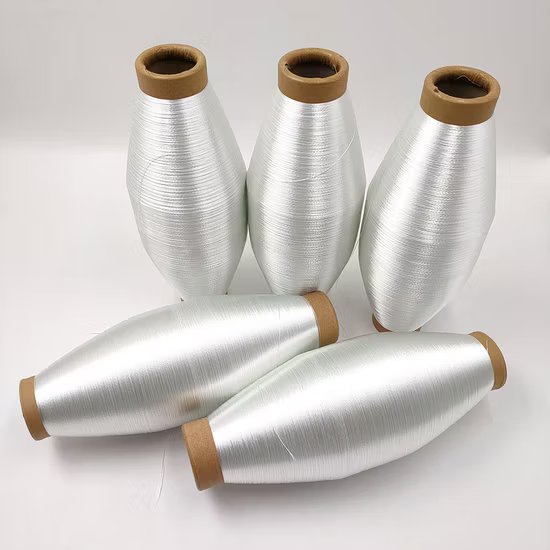

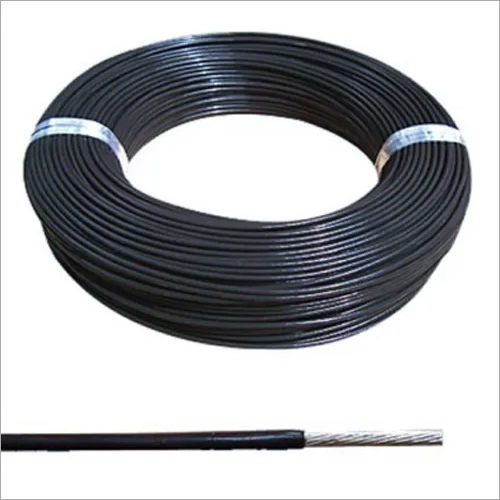
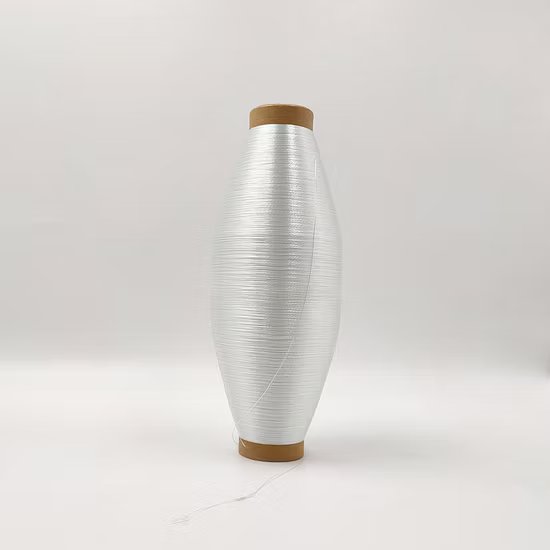

 Send Inquiry
Send Inquiry Send SMS
Send SMS Call Me Free
Call Me Free
 English
English Spanish
Spanish French
French German
German Italian
Italian Chinese (Simplified)
Chinese (Simplified) Japanese
Japanese Korean
Korean Arabic
Arabic Portuguese
Portuguese